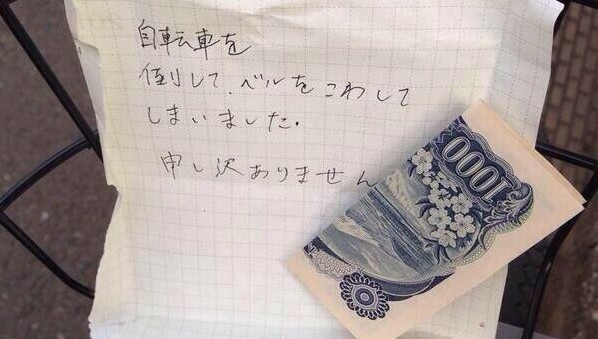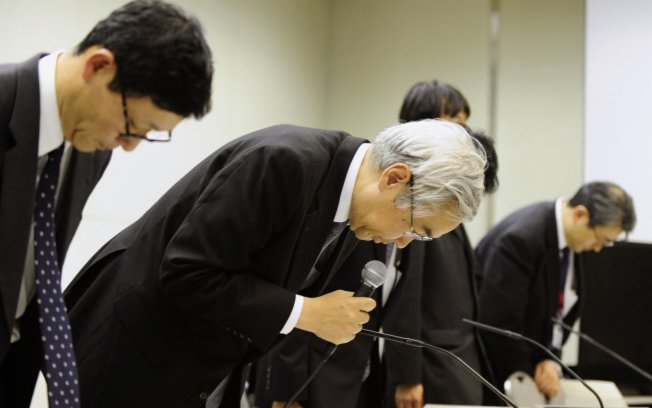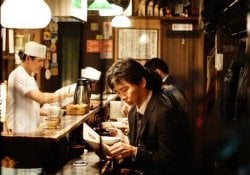Unfortunately we live in a world full of dishonesty, corruption, criminality and many evils that harm people. Unfortunately, some have a distorted notion of right or wrong. Sometimes even we do something that seems normal but is actually dishonest. A great example of honesty is the Japanese, sometimes we can even be surprised with so much honesty, the Japanese don't understand why we put so much emphasis on their honesty, because for them it's something normal, an obligation, a way of life.
In this article I have gathered several examples that show the honesty of the Japanese in many different ways, we should be ashamed of not adopting a lifestyle that thinks about others first. It is worth remembering that we are not saying that in Japan there is no corruption or dishonesty, but that most people there are honest.
Índice de Conteúdo
Mujin hanbai
In addition to the thousands of electronic vending machines found on every corner of Japan, where no one breaks in to steal the money. There are the unbelievable Mujin hanbai que são pequenas bancas montadas na beira da estrada ou até mesmo na cidade, onde fazendeiros ou outros colocam suas frutas embaladas à venda, e deixa uma pequena caixinha para as pessoas pagarem. Ninguém rouba as frutas, verduras nem o dinheiro, todos pagam o valor exato. Provavelmente no Brasil levariam até mesmo a barraca...
Piracy
There is no shortage of pirated DVDs and CDs in Brazil. Then I think: “I don't want to collaborate with piracy, it's better to download from the internet”. Know that in Japan most people would rather pay to download a song than download it for free on Google. Downloading music, movies and series is seen as a crime, it really is a crime, both in Brazil and in Japan this is still piracy.
One proof of this is that if you search for Japanese songs, or anything else like books, movies, mangas... You will come across a shopping website, you may even find the download button, but when you click on it you will have to spend some yen. If you search in Japanese, it will be difficult to find pirate media on the internet.
Some still prefer to buy the CD, DVD, CD-ROM instead of pirating. While in Brazil everyone is using the mp3 format with thousands of songs, the classic original CD is quite commercialized there.

Lost? He thought!
In Japan there is no concept “Finding is not stolen”. Know that most things lost in Japan are returned. One day a friend forgot his purchases at a store in Akihabara and it was already far away, the store owner came running to deliver it, he didn't even have to pick it up. There are countless situations of people who have lost objects or huge amounts of money and received them back.
A colleague commented that he already forgot one of the cheapest umbrellas in the taxi. The taxi driver only realized he had forgotten about it when he returned to the taxi stand, which is in the mall. He had no doubts, turned around, came to the building and delivered the umbrella to the concierge, without charging a penny for it. He could have charged the 14 reais for the race, but he didn't. He also forgot his cell phone and the driver came back four hours later apologizing for taking so long and explaining that he had taken a ride away right after dropping him off.
During the 2011 earthquake, the Japanese handed over 125 million in cash to the police, which they returned to their owners. Money, gold bars… all of this found in 5,700 vaults of homes and businesses destroyed by the tidal waves. To give you an idea, in just one safe there was the equivalent of 1.5 million reais. Apart from the wallets and purses stuffed with yen, left behind in the rush of the escape or that belonged to people dragged away. No one thought: “Aah, the owner of the money died, I'm going to take it and rebuild my life since I lost my house anyway”.

Outro acontecimento que mostra a honestidade e amor ao próximo aconteceu quando; alguém quebrou a buzina da bicicleta e deixou um bilhete pedindo desculpas e o dinheiro para o dono comprar outra buzina. Ela poderia apenas ir embora, ninguém ia saber. E como ninguém roubou o dinheiro ou bilhete? É algo comum deixarem bilhetes em algumas fábricas e locais de trabalho, avisando que encontrou algo perdido.
In 2003 a law professor left 20 desks on a street in Tokyo and 20 on a street in New York, containing the same amount of money. In New York, six wallets with money and two empty were handed over (to the police). In Tokyo 17 wallets were returned, 1 of them asked for the money if the owner is not found. If it was in Brazil? How many wallets would be returned?
Another thing that proves Japanese honesty is that in most places you take your shoes off to enter, like schools. Thousands of expensive shoes and sneakers are displayed in places with no security, but no one steals or takes them.

The article is still halfway through, but we recommend also reading:
honest government
Every government in the world, even if a little, has someone involved in corruption, even Japan. But looking at it another way, after the 2011 tsunami, the Government of the Prefecture of Fukushima, returned the equivalent of the value of 180 million reais to the World Red Cross, money that had been taken to help with the difficulties of the earthquake. If it had been another government, they would never have returned the money, or they would have used it for good or they would have pocketed it and no one would know.
The Japanese rulers, at any level, when caught in even small corruptions, even kill themselves for the shame to which they will be publicly exposed. In other places the corrupt boast of the deed, and pose as honest. Some Japanese even surrender the position just for not being able to fulfill the promises to the population.

Honesty is a matter of elegance
Of course, Japan is not honest, there are several cases of umbrellas that never saw their owners again. There are also thefts. But the law is tough, even if you find it and don't return the money, you can be arrested. This collaborates a lot for the country to continue on a more honest path. As in Japan I believe that in Brazil there are a large number of honest people, but unfortunately they are even mocked for their honesty.
Honesty (正直 – Shōjiki) is the word that indicates the quality of being truthful: not lying, not defrauding, not deceiving. Honesty, explicitly, is unconditional obedience to existing moral rules. That is, even if you are disobeying traffic laws, you are being dishonest. In Japan, both in traffic and on the street, people follow the laws in the smallest detail, not passing red lights, and not passing outside the lane. Honesty is trained from the little things, even the little lies you tell can ruin your honesty.
It's really not easy to be honest in a place surrounded by dishonest people or people who only think about themselves. We are very poorly influenced, both by the people and the media we watch. So try to cultivate honesty in yourself, try to follow the example of the Japanese people, even if it doesn't seem to make sense, it's by the little things you do, that you will see the result.
What do you think of Japanese honesty? Do you have an example or story to tell us? Have you been doing your best to be honest? So help people to be honest by commenting and sharing this article so they can see that honesty has given people a better life. Japan being the 3rd largest economy in the world, one of the safest and best countries to live in, is thanks to the honesty of the Japanese people.







